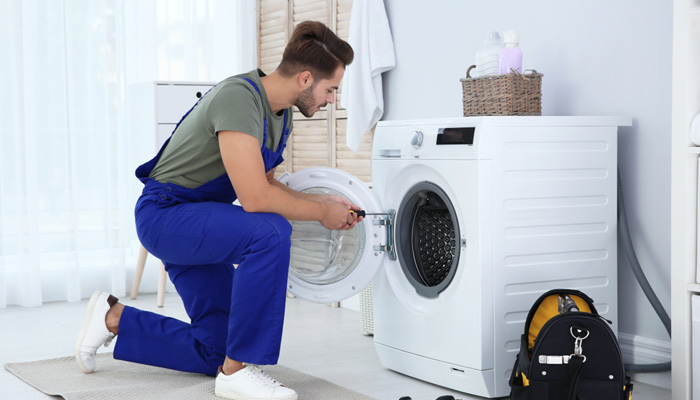Shutterstock
We’ve all lived it. You buy an appliance, just to have it die moments after the warranty wears out. Worse, you can’t repair it yourself or find someone who can at a reasonable price, so it heads to the junk heap.
Now, at least 18 US states and parts of the EU are considering “right to repair” laws to force companies to make products that are easier to repair and last longer.

Many products are designed along a concept called “planned obsolescence,” where they purposely have a shortened lifespan in order to boost repeat or future sales. Many manufacturers are creating products that are not repairable by the consumer. Many products are glued together and can’t be pried open.
In addition, of those that can be repaired, the repairs can only be done by manufacturer-approved trained technicians, and more often than not, the cost of parts and repairs outweighs buying a new product in the long run.
Another problem is that some products have a limited supply of spare parts or no spare parts available at all. Add to that, these products don’t offer repair instructions so that the average person could perform their own repairs.
At least 18 US states are considering some type of “right to repair” legislation and a similar movement is gaining significant steam in Europe. The proposed legislation is taking aim at large home appliances, television and lighting products. They also hope to add products such as printers and smartphones into new legislation.
One problem is that current legislation has previously limited independent repairers from having access to information and spare parts, thus limiting the scope and affordability of repair services.
Scrapped appliances are contributing to a literal global mountain of junk. This has been worsened by China recently announcing that it would no longer be accepting materials from other countries for recycling.
China no longer wants the world’s junk, discovering that due to manufacturing processes, it’s too costly to separate useful materials during recycling. This in itself makes a strong statement for repairable products and making them last longer.
Additionally, the process of continually manufacturing new products contributes to increased greenhouse gases being released into the environment.